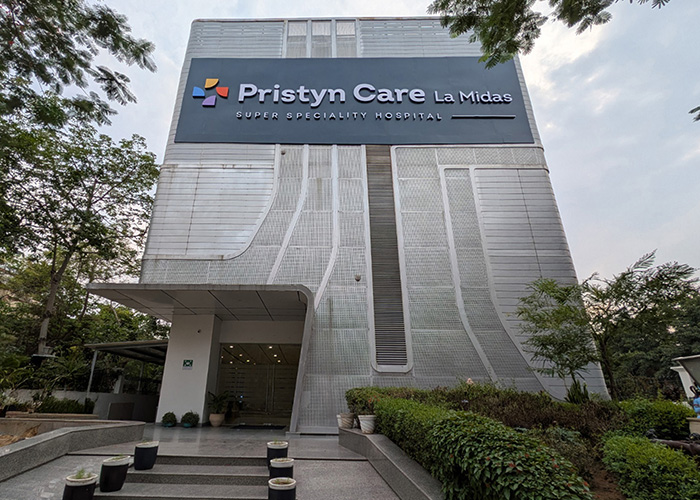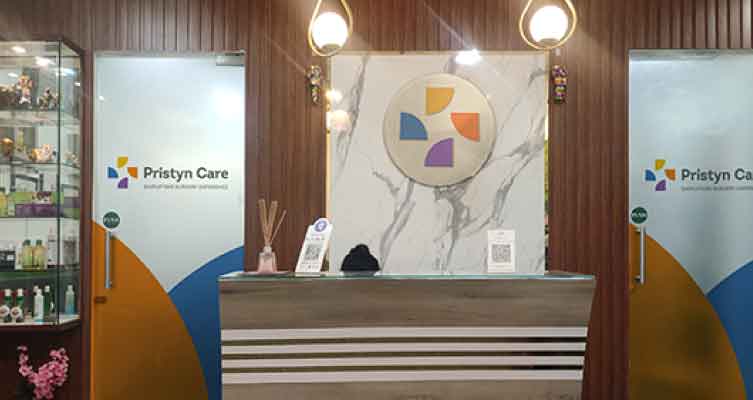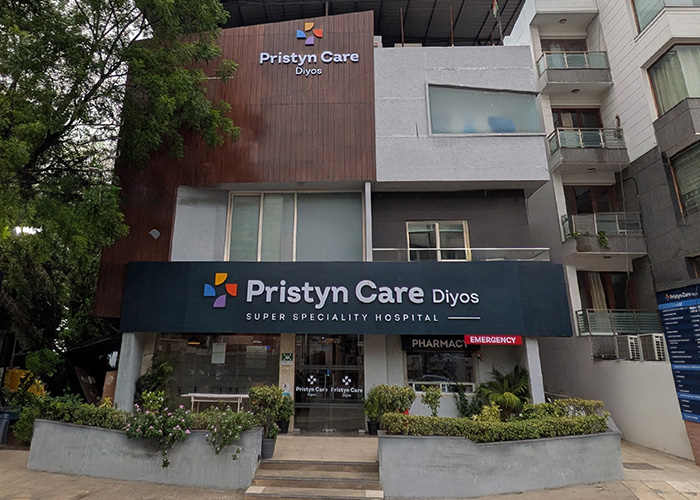
Faridabad
USFDA Approved Procedures
Minimally invasive. Minimal pain*.
Insurance Paperwork Support
1 Day Procedure
Pristyncare%20Clinic.webp)





Diagnostic Tests and Treatment for Nasal Polyps
Diagnostic tests are frequently recommended by the surgeon to diagnose the patient’s condition. These tests also add to the overall cost of the surgery. Some diagnostic tests for nasal polyps and their prices are as follows:
Nasal endoscopy: Rs. 1500 – Rs 2000
X-Ray: Rs. 250- Rs. 500
CT Scan: Rs. 1500 – Rs. 3500
Test for cystic fibrosis: Rs. 300 – Rs. 500
Blood Tests: Rs. 100 – Rs. 300
Although medications can help relieve symptoms, they rarely remove nasal polyps. The following are some preventive measures and medications that can help relieve nasal polyps symptoms:
If the medications do not work or you have large polyps, surgery to remove them may be necessary.
Polyps are frequently treated with endoscopic sinus surgery. In this surgery, your doctor will use a thin, lighted tube with instruments at the end. . The doctor will insert the tube into your nasal passages and remove the polyps. This is a daycare procedure, and you’ll get discharged from the hospital on the same day.


 NABH
NABH
Pristyn Care Diyos Super-Speciality Hospital is committed to redefining modern healthcare by blending cutting-edge technology with compassionate, patient-first care. Located in the heart of Safdarjung Enclave, South Delhi, our NABH-accredited facility offers advanced treatment solutions across multiple specialties, ensuring superior outcomes and faster recoveries.
Our dedicated team of doctors at Pristyn Care Diyos Hospital aims to streamline the entire patient journey—from consultation to recovery—by providing seamless, end-to-end medical care tailored to each individual’s needs.
We offer specialised medical services across a wide range of fields, including urology and andrology, general and laparoscopic surgery, cosmetic and plastic surgery, gynaecology and urogynaecology, orthopaedics, neuro and spine surgery, ENT (ear, nose, and throat), oncology, internal medicine, and critical care. Our facility also extends home care services for enhanced convenience and continuity of care.
The suites and patient rooms at the Hospital are thoughtfully designed to ensure a comfortable and healing environment, featuring modern amenities, hygienic surroundings, and attentive support for both patients and their attendants.
Supported by a skilled clinical team and world-class infrastructure—including modular operation theatres with HEPA filters, advanced diagnostic labs, and high-end medical equipment— Pristyn Care Diyos Hospital stands as a trusted destination for safe, effective, and personalised healthcare.
...Read More
Pristyn Care is a leading surgery care provider in India. We are associated with some of the best multi-specialty hospitals and clinics in almost all the major cities of India. Our aim is to ease the process of accessing advanced treatment and surgeries for each patient at an affordable price. We work with some of the best ENT surgeons and specialists who have years of experience in providing treatment for nasal poly surgery with a high success rate. Here are some reasons why you should choose Pristyn Care for nasal polyps surgery:
To make the commute easier, we provide a free cab facility to and from the hospital on the day of surgery, along with complimentary meals.
To ease the financial burden, we provide multiple modes of payment, including credit cards and cash payments, along with no-cost EMI service.
We provide free multiple follow-ups to ensure the smooth recovery of the patients.
We work with a team of expert and highly experienced ENT surgeons who have ample experience. Our ENT surgeons discuss all the necessary information about maxillary sinus surgery beforehand to make you aware of the procedure and certain risks involved during the treatment.
Nasal irrigation, also known as neti pot, may alleviate nasal polyp symptoms. Additionally, it might help with the management of polyp causes like allergies or sinus infections.
You may experience drainage for a week or a few days only. Bandages may need to be changed frequently during this time. After a nasal polyp surgery, full recovery usually takes two weeks.
Nasal polyps can cause unpleasant nasal odors or noticeably lowered senses of taste and smell. Your breathing might not be impacted.
Medication most likely won’t be able to remove nasal polyps. Surgery is typically the last resort after all other treatments have failed to give you enough relief. However, polyps can come back even after surgery.
Nasal sprays with topical steroids, such as Nasonex (mometasone furoate) and Flonase (fluticasone propionate), can reduce nasal polyps and prevent their recurrence following surgery. Ask your physician before using these nasal sprays.
Nasal polyps are persistent and won’t disappear on their own. Large nasal polyps or clusters should be treated because they can cause a number of symptoms. Large nasal polyps can obstruct the nose and result in complications.
.svg)
.svg)
.svg)